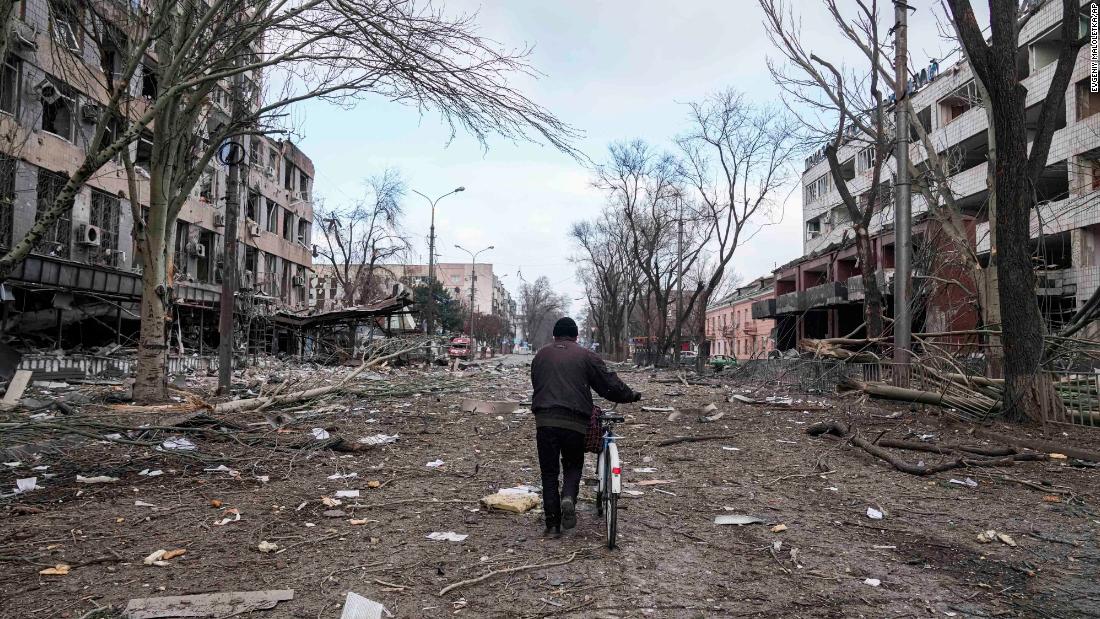The Office of the UN High Commissioner for Human Rights said Friday it remains “gravely concerned by the rising death toll and human suffering in Ukraine” and called “for an immediate end to the attacks.”
“Civilians are being killed and maimed in what appear to be indiscriminate attacks, with Russian forces using explosive weapons with wide area effects in or near populated areas. These include missiles, heavy artillery shells and rockets, as well as airstrikes,” spokesperson Liz Throssell said in a statement.
The OHCHR said it had recorded 549 civilian deaths and 957 injuries since the invasion began, “although the actual figure could be much higher.”
Schools, hospitals, and kindergartens have been hit – with hugely devastating consequences,” Throssell said.
On March 3, 47 civilians were killed when Russian airstrikes hit two schools and several apartment blocks in Chernihiv and on March 9, a Russian airstrike hit a Mariupol hospital injuring at least 17 civilians, she added.
“We are still investigating reports that at least three civilians may have been killed in the airstrike.”
Sources in Mariupol, Throssell added, said the hospital was “both clearly identifiable and operational when it was hit.”
The OHCHR also received “credible reports of several cases of Russian forces using cluster munitions, including in populated areas,” said Throssell.
The use of one cluster munition was reported on February 24 in the Central City Hospital in Vuhledar, in Donetsk, killing four civilians and injuring t10. At least nine other civilians were killed and 37 injured in “other cluster munition attacks” in several districts of Kharkiv, she said.
“Due to their wide area effects, the use of cluster munitions in populated areas is incompatible with the international humanitarian law principles governing the conduct of hostilities,” Throssell said.
“Civilian casualties are rising daily, as is general human suffering. We remind the Russian authorities that directing attacks against civilians and civilian objects, as well as so-called area bombardment in towns and villages and other forms of indiscriminate attacks, are prohibited under international law and may amount to war crimes,” she added.
The OHCHR, she added, was also concerned by reports of “arbitrary arrests and detention” of Ukrainians who voiced opposition to the Russian attack, including in peaceful protests.
“We believe that those detained are at risk of torture or other ill-treatment and call for their immediate and unconditional release.”
OHCHR is also concerned “by the pejorative use of labels such as ‘saboteurs’ and ‘mercenaries,’ with the intent or effect of exposing certain individuals to higher risks of harm,” she said.
“We call on the parties to fully respect the rights of everyone under their control,” Throssell said. “Those who have laid down their weapons … including prisoners of war, must be treated humanely, and be protected from any form of torture or degrading treatment.”








